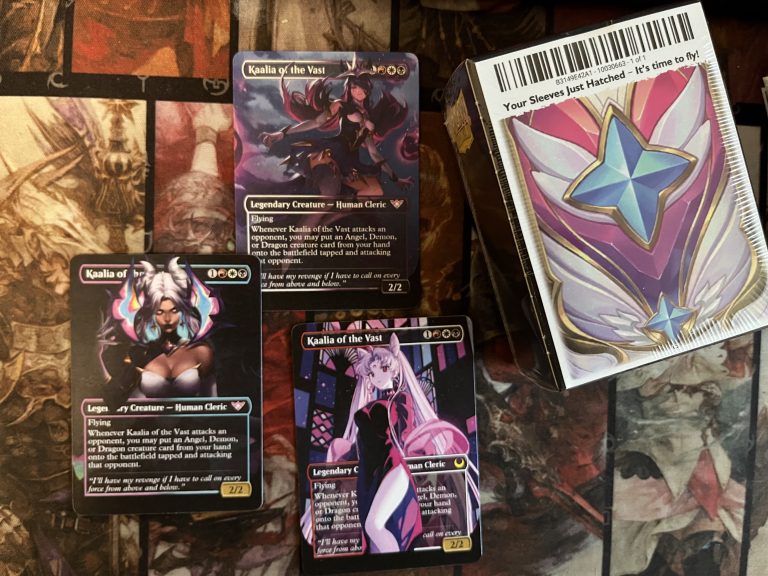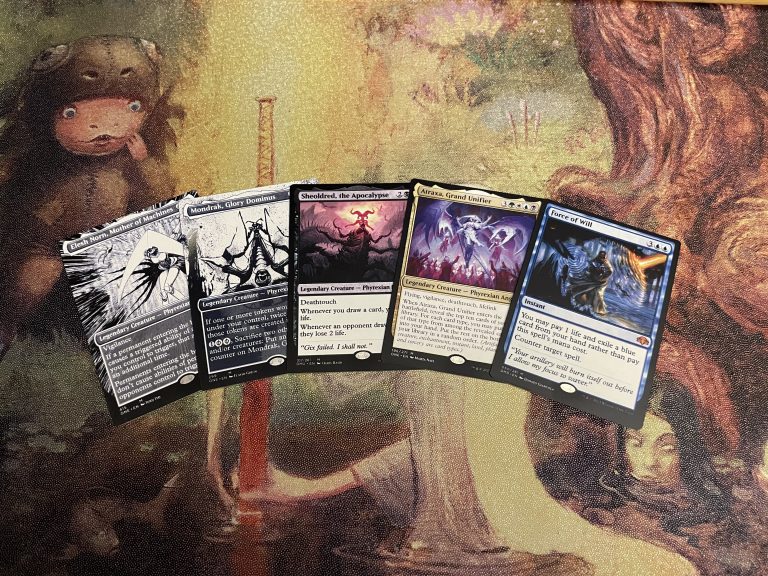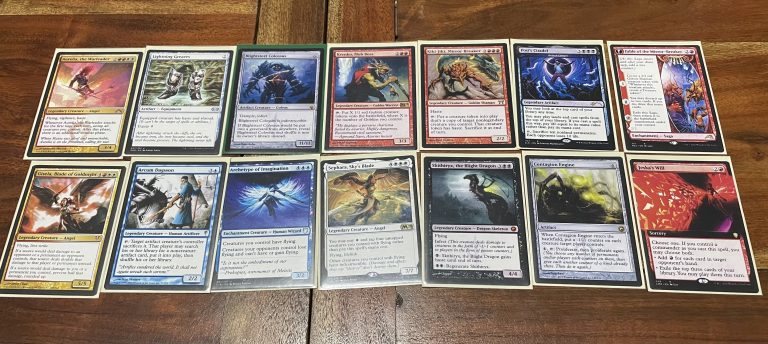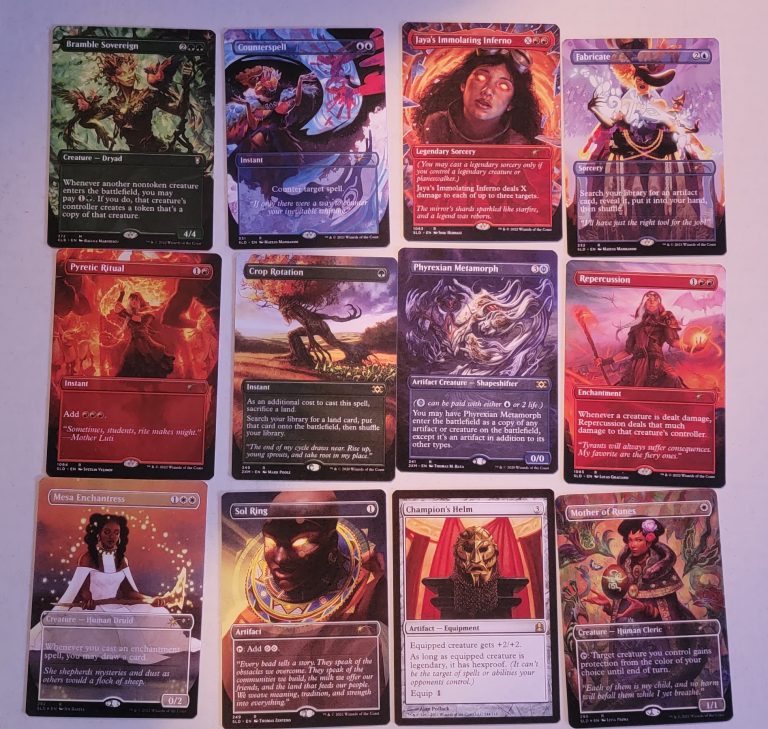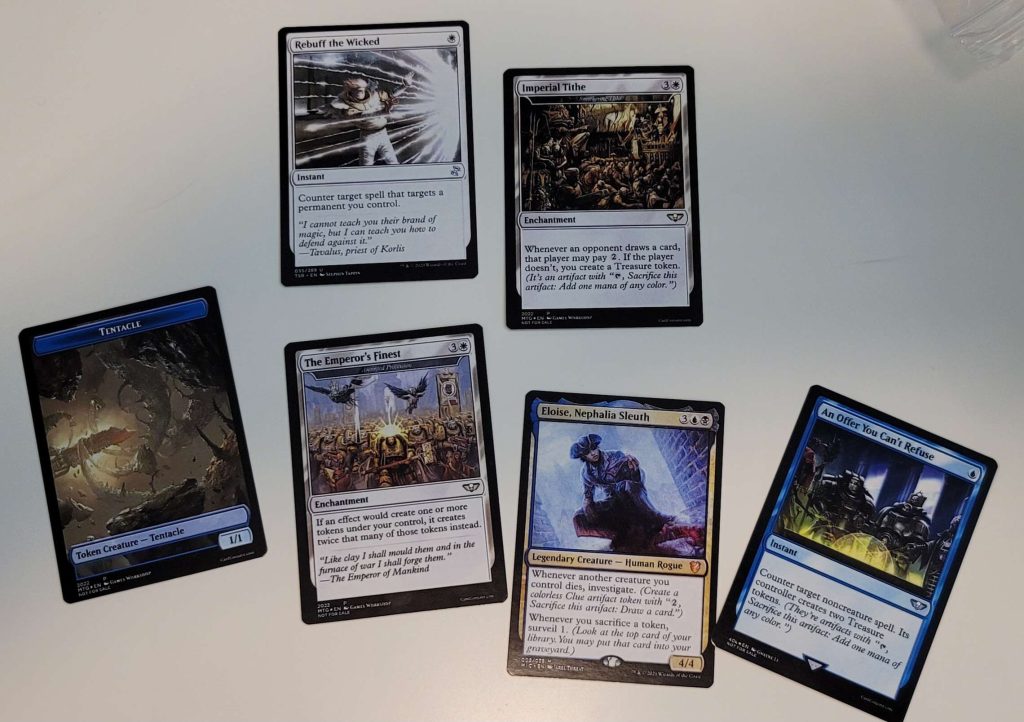Introduction:
Magic: The Gathering (MTG) is a popular trading card game that has been around for over 25 years. With a vast collection of cards that are constantly being released, players are presented with two options when building their decks: using official cards or using MTG proxies. In this article, we will explore the differences between MTG proxies and official cards, and examine the advantages and disadvantages of each option. We will also discuss which option is better, depending on the players’ individual preferences and circumstances.
MTG Proxies:
MTG proxies are cards that are created to look like official MTG cards, but are not officially licensed or endorsed by the game’s creators, Wizards of the Coast. There are many reasons why players choose to use MTG proxies. For example, some players use proxies to test out new card combinations before investing in the official cards. Others use proxies to make their decks more affordable, as some official cards can be quite expensive. MTG proxies can be created in various ways, including printing them on cardstock, hand-drawing them, or even creating digital versions. One of the main advantages of using MTG proxies is cost-effectiveness. If a player wants to test out a new deck, for instance, they can create proxies of the cards they need without having to purchase them all upfront.
This can be especially helpful for players who are just starting and may not have the financial means to purchase a large collection of cards. MTG proxies are also much more accessible than official cards, as players can create them at home or download them from various online sources. However, there are also some drawbacks to using MTG proxies. First and foremost, using MTG proxies can be illegal. While some playgroups may allow the use of proxies, many official MTG tournaments and events do not allow proxies. Additionally, the quality of MTG proxies can vary greatly. While some players may create high-quality proxies that look and feel like the real thing, others may create poor quality proxies that are easily recognizable. Using poor quality proxies can detract from the overall gaming experience, as players may become frustrated with the poor quality of the cards.
Official MTG Cards:
Official MTG cards are the cards that are produced and sold by Wizards of the Coast. They can be purchased in various forms, including booster packs, preconstructed decks, and singles. One of the primary reasons why players prefer official MTG cards is their high-quality. Official cards are printed on high-quality cardstock, with crisp, vibrant artwork that is consistent across all cards in the set. Additionally, official cards are much more collectible than MTG proxies, as they are produced in limited quantities and can become valuable over time. Another advantage of using official MTG cards is their legality. Unlike MTG proxies, official cards are legal to use in all official MTG tournaments and events. This means that players who invest in official cards can participate in high-level competitive play, which can be a major draw for serious players. However, there are also some disadvantages to using official MTG cards. One of the main drawbacks is cost. Some official cards can be quite expensive, which can make it difficult for some players to build the decks they want. Additionally, some players may find that the collectibility of official cards can be a distraction from the gameplay itself. Focusing too much on the value of the cards can detract from the overall enjoyment of the game.
The Differences Between MTG Proxies and Official Cards:
There are several differences between MTG proxies and official cards. The most obvious difference is in the materials and production methods used to create the cards. Official cards are produced on high-quality cardstock using professional printing techniques, while MTG proxies are typically printed on lower-quality cardstock using consumer-grade printers. Additionally, the artwork and aesthetics of official cards are consistent across all cards in a set, while the artwork on MTG proxies can vary widely, depending on how they were created. The game mechanics of official cards, such as card thickness, texture, and feel, are also different from those of MTG proxies. Another key difference between MTG proxies and official cards is in their rarity and value. Official cards are produced in limited quantities, with some cards being rarer and more valuable than others. The rarity and value of official cards can be an important factor for collectors, but it can also make it difficult for some players to obtain the cards they need for their decks. MTG proxies, on the other hand, have no inherent rarity or value, as they are not official cards.Lastly, there is a difference in the legal status of MTG proxies and official cards. While official cards are legal to use in all official MTG tournaments and events, the use of MTG proxies is generally not allowed. Some playgroups may allow the use of proxies, but players should always check the rules of any tournament or event they plan to participate in to ensure that they are allowed to use proxies.
Which is Better?
The answer to this question depends on the individual player’s preferences and circumstances. If cost is a major factor, then MTG proxies may be a better option, as they can be created at home for little cost. However, if legality is a concern, then official cards are the clear choice. Additionally, if a player is looking to collect valuable cards, then official cards are the way to go. Ultimately, the decision between MTG proxies and official cards comes down to personal preference and the player’s intended use for the cards.
Conclusion:
In conclusion, there are several key differences between MTG proxy and official cards, including their materials and production methods, artwork and aesthetics, game mechanics, rarity and value, and legal status. While MTG proxy can be a cost-effective and accessible option for some players, they are generally not legal for use in official tournaments and events. Official cards, on the other hand, are of higher quality and are legal for use in all official MTG events, but can be quite expensive. Ultimately, the decision between MTG proxies and official cards depends on the individual player’s preferences and circumstances.
Frequently Asked Questions
MTG proxies are unofficial cards that are created by players or fans of the game using different materials, such as printer paper, cardstock, or even scanned images of official cards. These cards are not produced by the game’s official manufacturer, Wizards of the Coast, and are not legal for use in official MTG tournaments and events.
Official MTG cards are produced by Wizards of the Coast, the game’s official manufacturer. These cards are made from high-quality materials and are legal for use in all official MTG tournaments and events. Official cards are typically more expensive than MTG proxies, as they are produced in limited quantities and some cards can be rare and valuable.
The main differences between MTG proxies and official cards are in their materials and production methods, artwork and aesthetics, game mechanics, rarity and value, and legal status. MTG proxies are typically made from cheaper materials and may have varying artwork, while official cards are made from high-quality materials and have consistent artwork across all cards in a set. Official cards are also legal for use in all official MTG tournaments and events, while the use of proxies is generally not allowed.
No, the use of MTG proxies is generally not allowed in official tournaments and events. While some playgroups may allow the use of proxies, players should always check the rules of any tournament or event they plan to participate in to ensure that they are allowed to use proxies.
Yes, MTG proxies can be a cost-effective option for players who want to play the game but cannot afford to purchase official cards. MTG proxies can be created at home for little cost, making them accessible to a wider range of players.
The answer to this question depends on the individual player’s preferences and circumstances. Official cards are of higher quality and are legal for use in all official MTG events, but can be quite expensive. MTG proxies, on the other hand, can be a cost-effective option for some players, but are not legal for use in official tournaments and events. Ultimately, the decision between MTG proxies and official cards comes down to personal preference and the player’s intended use for the cards.
 Custom Gallery
Custom Gallery Proxy Booster
Proxy Booster Discord
Discord